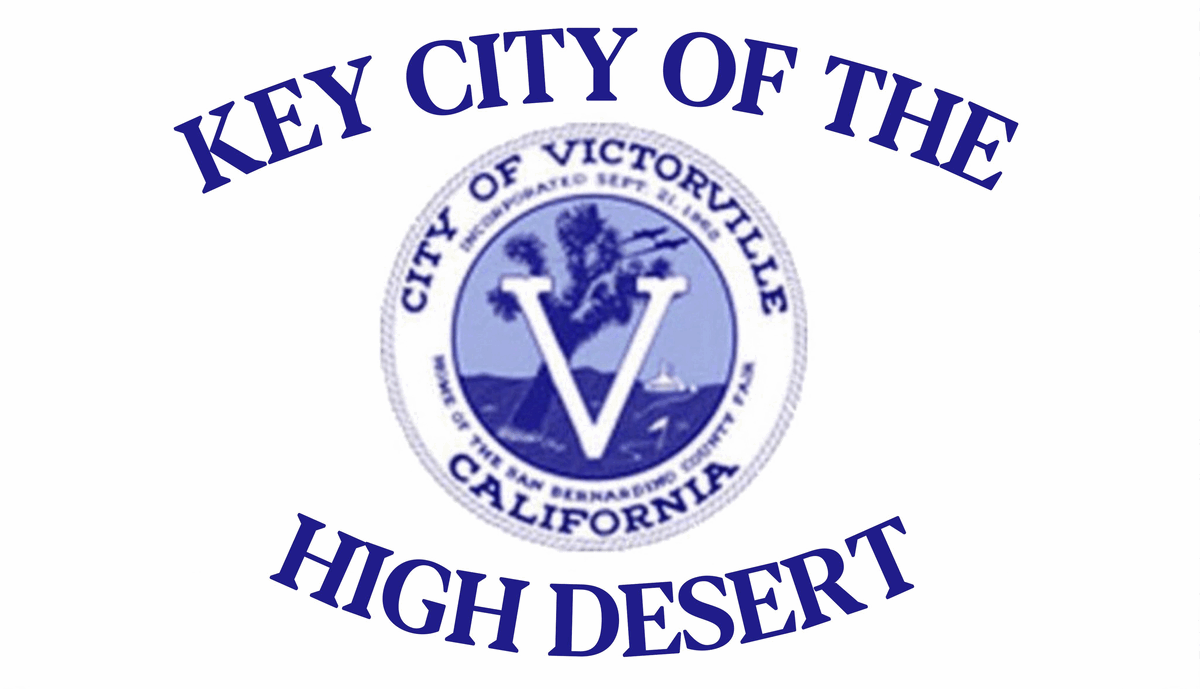Victorville, CA
| City of Victorville | |||
|---|---|---|---|
| City | |||
|
|||
 Location of Victorville in California |
|||
| Location in the United States | |||
| Coordinates: 34°32′10″N 117°17′28″W / 34.53611°N 117.29111°WCoordinates: 34°32′10″N 117°17′28″W / 34.53611°N 117.29111°W | |||
| Country | United States | ||
| State | California | ||
| County | San Bernardino | ||
| Incorporated | September 21, 1962 | ||
| Named for | Jacob Nash Victor | ||
| Government | |||
| • Mayor | Gloria Garcia | ||
| • City manager | Doug Robertson | ||
| Area | |||
| • Total | 73.741 sq mi (190.988 km2) | ||
| • Land | 73.178 sq mi (189.529 km2) | ||
| • Water | 0.563 sq mi (1.459 km2) 0.76% | ||
| Elevation | 2,726 ft (831 m) | ||
| Population (April 1, 2010) | |||
| • Total | 115,903 | ||
| • Estimate (2013) | 121,096 | ||
| • Rank |
5th in San Bernardino County 48th in California |
||
| • Density | 1,600/sq mi (610/km2) | ||
| Time zone | Pacific Time Zone (UTC-8) | ||
| • Summer (DST) | PDT (UTC-7) | ||
| ZIP codes | 92392–92395 | ||
| Area codes | 442/760 | ||
| FIPS code | 06-82590 | ||
| GNIS feature IDs | 1652806, 2412156 | ||
| Website | ci.victorville.ca.us | ||
Victorville is a city located in the Victor Valley of southwestern San Bernardino County, California. Its estimated population as of July 1, 2013 was 121,096.
In 1858, Aaron G. Lane came to what is now known as Victorville and founded a way station called "Lane's Crossing." For many years it provided shelter and supplies for people making the journey across the desert from the east to San Bernardino. Lane's Crossing was on the Mojave River on today's Turner Road, two miles north from where Interstate 15 crosses the river. Captain Lane was a veteran of the Mexican-American War who had suffered from malaria during that war. Originally he migrated west to join the California gold rush, but he learned that he could make a better living selling supplies to the miners.
He settled in Ione near Sutter's Mill in northern California during those years, but he migrated to San Bernardino in 1857. He settled on the Mojave River in 1858, where he established his way station. He later sold out to Texan John Fry Miller, who changed the name of Lane's Crossing to Pioneer Station. Miller was a rancher and became involved in Mojave Valley politics, setting up the first polling place in the area at his home. That first year, ten citizens cast their votes at Lane's residence, rather than making the long trip to San Bernardino.
Census records show that ten people lived in two residences on the river by 1860. Listed in Dwelling No. 703 were Aaron Lane, William R. Levick, and the Nicholson family, consisting of George and Frances, and their three children aged 9 to 13. Joseph and Mary Highmoor lived in Dwelling No. 704, with a seven-year-old female named Anna.
The Levick, Nicholson and Highmoor families were Mormon pioneers. Highmoor established a way station called Highmoor's Crossing, which was near today's Oro Grande bridge of the National Trails Highway (known as U.S. Route 66), over the Mojave River at what is called the Lower Narrows. The Nicholson family moved downriver a few miles and established a way station at "Point of Rocks" in today's Helendale area.
In 1867, Lafayette Meacham, a Mormon who ran a way station near today's Barstow area, made a new wagon road from his stage stop to what is now Old Town Victorville. It crossed the Mojave River at today's Sixth Street. This new road, now called Stoddard Wells Road, was a short-cut across the desert and became a popular route for muleskinners and freighters. The river crossing was called Mormon Crossing and the surrounding area became known by that name.
...
Wikipedia




